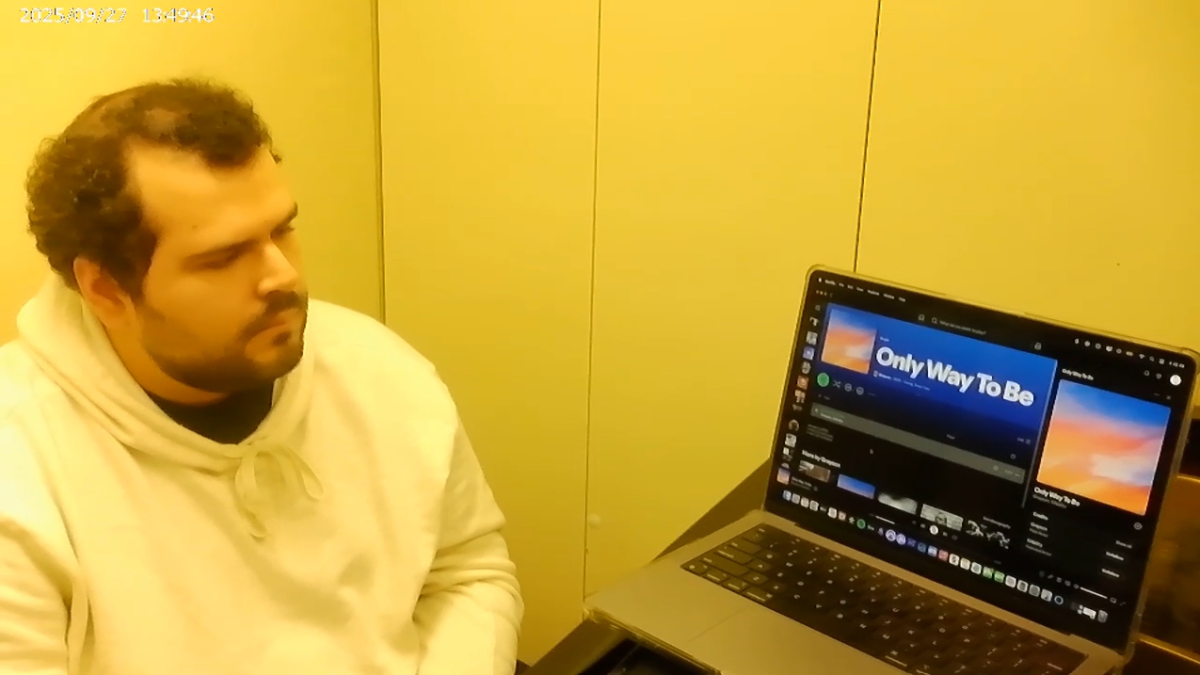UNC Asheville music students said they chase their passion despite financial uncertainty, an oversaturated industry, and the constant pressure to prove their craft is more than a dream.
“You have to love it enough to keep going when no one’s listening,” said Aaron Higgins, a first-year Music Technology student. “Because most of the time, no one is.”
The modern music industry is more accessible than ever, yet more challenging. According to a 2022 MIDiA Research report, only 0.4% of artists on streaming platforms make over $50,000 per year, leaving most musicians struggling to earn a sustainable income.
Higgins said he spends hours in the studio perfecting tracks, but the process is rarely straightforward.
“People don’t realize how long it takes,” Higgins said. “It’s not just one song that makes you blow up.”
Many students at UNCA said they enter the music program knowing the odds. Some pursue performance, others produce, but all must navigate an industry where exposure does not always translate into financial security.
Grayson Warner, a transfer student from the Outer Banks, said that while UNCA’s music program offers support, the reality outside campus can be daunting.
“The department here feels like a family. It never felt toxic or like it was pushing pressure on us to be the next best musicians,” he says, glancing down at the floor as if reluctant to put too much weight on the words.
“I’ve spent so much of my life doing things I had to do,” Warner said. “Now, I finally get to do something I want, but I know it won’t be easy.”
Warner leans back in his chair, fingers tracing the worn frets of his acoustic guitar. A threadbare flannel hangs loose over his shoulders, the kind of second-hand find that feels like home. His eyes flicker as he searches for the words to explain something that doesn’t need explaining.
“Music is my way of existing,” Warner said. “UNCA’s music department is chill and nurturing. I needed that.”
Music students at UNCA said the modern music industry is saturated, yet music isn’t a choice for those who chase it; it’s a need.
Higgins said he chose UNCA not only for the opportunities it provides but also for the space to figure out his sound without the relentless pressure of a make-it-or-break-it industry.
“I’ve been to a couple of other colleges, but I just like the atmosphere here,” he says.
Streaming services such as Spotify and Apple Music provide a platform but pay little in return. According to a 2023 report from the Union of Musicians and Allied Workers, artists earn between $0.003 and $0.005 per stream, meaning a song would need 200,000 plays to reach minimum wage for a month.
The financial strain extends beyond royalties. Equipment, software, and production costs often outweigh any earnings, forcing students to find part-time jobs or alternative ways to fund their music.
Griffin Salyer, a music member in the program, said he knows firsthand how the pressure can weigh on an artist. After nine hours of recording a song, he deleted every take in frustration.
“I lost confidence,” he said. “I couldn’t even play the song again until today.”
Confidence, he said, is often just as important as talent.
“If you don’t believe in yourself, it comes through in the music,” Higgins said.
Higgins said he thinks about artists like Frank Ocean, who spent years in obscurity before finding his audience.
“It took time,” he says, stretching his arms above his head, exhaustion creeping into his voice.
“He was working, thinking he wasn’t getting anywhere.”
But at the end of the day, Higgins said a good artist doesn’t need all that, waving a hand toward the expensive studio equipment some musicians swear by.
“It’s about authenticity. That’s what makes people listen. Some singers hit every note perfectly but don’t move people. And then some singers miss half the notes, just bring judges to tears.”
For many, graduation marks a harsh reality check. According to a 2021 Music Industry Research Association survey, nearly 60% of musicians work second jobs to sustain themselves.
John Lewers, 32, a SAE Institute of Technology-Atlanta graduate, studied sound engineering but now works a corporate job unrelated to his degree.
“I thought I’d go on to produce music,” he said. “I worked so hard to get the job and earn the salary. And now I just clock-in and mix music in my free time.”
Despite these struggles, students said they remain determined. They continue recording, performing, and refining their craft, hoping persistence will pay off.
“You don’t get into music because it’s easy,” Warner said. “You get into it because you can’t imagine doing anything else.”


![Brooke Pedersen [second from the right] and Luis Reyes [right] hold banners during the Wrap The Woods event.](https://thebluebanner.net/wp-content/uploads/2025/09/ELIZABETH_PRITCHITT_IMG_3470-1200x804.jpg)
















